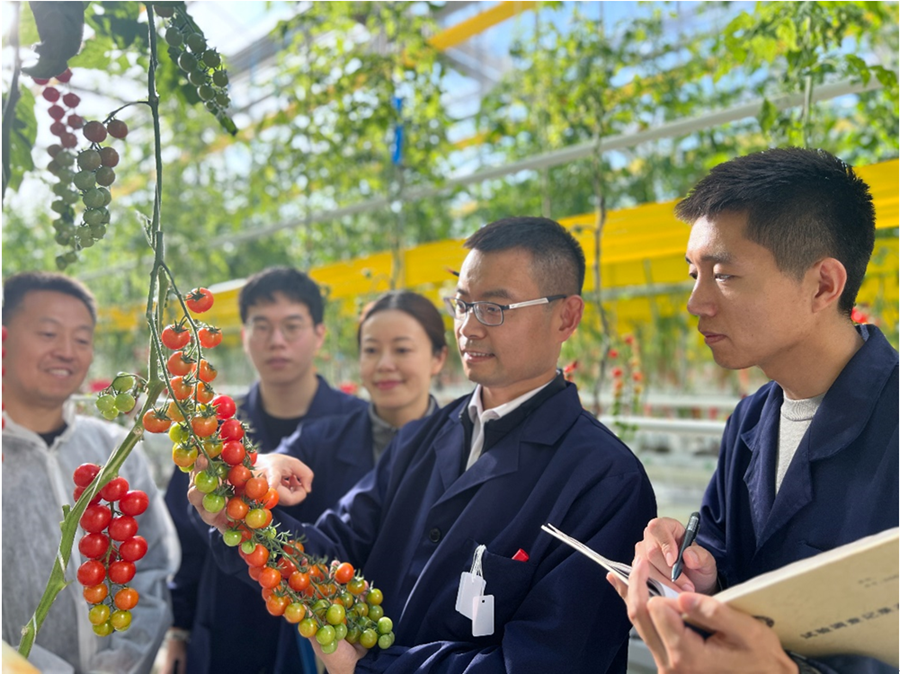
Scientists Develop Breeding Strategies to Create Climate-smart Crops
December 18, 2024| |
A study conducted by Prof. XU Cao's team from the Institute of Genetics and Developmental Biology (IGDB) of the Chinese Academy of Sciences reports a novel breeding strategy to rapidly create climate-smart crops with higher yield under normal conditions and greatly rescue yield losses under heat stress both in staple grain and vegetable crops.
Prof. XU Cao's research team developed a strategy based on climate-responsive optimization of carbon partitioning to sinks (CROCS) by rationally manipulating the expression of cell wall invertase gene (CWIN) genes in fruit and cereal crops. CWIN is the crucial gene that regulates the source-sink relationship in plants. The researchers knocked-in a 10-bp heat-shock element (HSE) into promoters of CWIN genes in elite rice and tomato cultivars, using self-developed high-efficiency, prime-editing tools. HSE insertion endows CWINs with heat-responsive upregulation in both controlled and field environments to enhance carbon partitioning to rice grains and tomato fruits.
Multi-location and multi-season yield tests conducted on tomatoes in greenhouses and open fields showed that the CROCS strategy increased tomato yields by 14% to 47%. Under heat stress, it increased per-plot fruit yield by 26%–33% over controls and rescued 56.4%–100% of fruit yield losses caused by heat stress. In rice cultivars improved by this strategy, a yield increase of 7% to 13% under normal conditions was observed, and a 25% grain yield increase over controls under heat-stress conditions. Specifically, up to 41% of heat-induced grain losses were rescued in rice.
For more details, read the news article in the Chinese Academy of Sciences website.
| |
You might also like:
- Climate Change Worsens Agriculture’s Environmental Impacts
- Global Study Identifies Practices for Climate-Resilient Agriculture
- Clemson University Researchers Uncover Roots of Climate-Resilient Cotton
Biotech Updates is a weekly newsletter of ISAAA, a not-for-profit organization. It is distributed for free to over 22,000 subscribers worldwide to inform them about the key developments in biosciences, especially in biotechnology. Your support will help us in our mission to feed the world with knowledge. You can help by donating as little as $10.
-
See more articles:
-
Plant
- IGI Leads Development of Technical Approach to Global Plant Genome Editing Regulation
- Australian OGTR Receives License Application for Field Trial of GM Canola
- GM Soybeans Show No Adverse Effects on Rat Health and Gut Microbiota
- Scientists Develop Breeding Strategies to Create Climate-smart Crops
- New Zealand Releases Proposed Updates on Gene Technology Framework
- Growing Public Knowledge Boosts Acceptance of Gene Editing in Japan
-
Food
- EFSA Releases Scientific Opinion on the Food Enzyme Endo-1,4-β-xylanase from GM Bacillus subtilis strain AR-153
-
Environment
- What do you think of this newsletter?
-
Read the latest: - Biotech Updates (January 28, 2026)
- Gene Editing Supplement (January 28, 2026)
- Gene Drive Supplement (February 22, 2023)
-
Subscribe to BU: - Share
- Tweet

